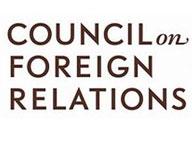Faculty News
—
Prof. Thomas Cooley on the LIBOR scandal
—

Excerpt from Council of Foreign Relations -- "It distorts trust in the marketplace if you can't trust the rates at which banks are lending to one another,' says Thomas Cooley of New York University's Stern School of Business. "
Faculty News
—

Excerpt from Council of Foreign Relations -- "It distorts trust in the marketplace if you can't trust the rates at which banks are lending to one another,' says Thomas Cooley of New York University's Stern School of Business. "



















